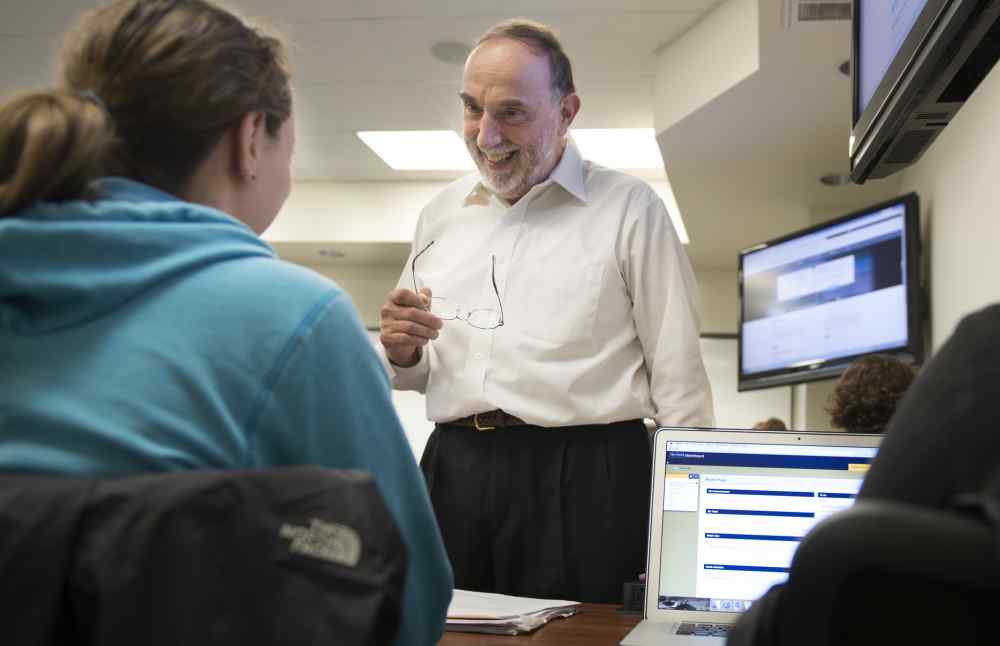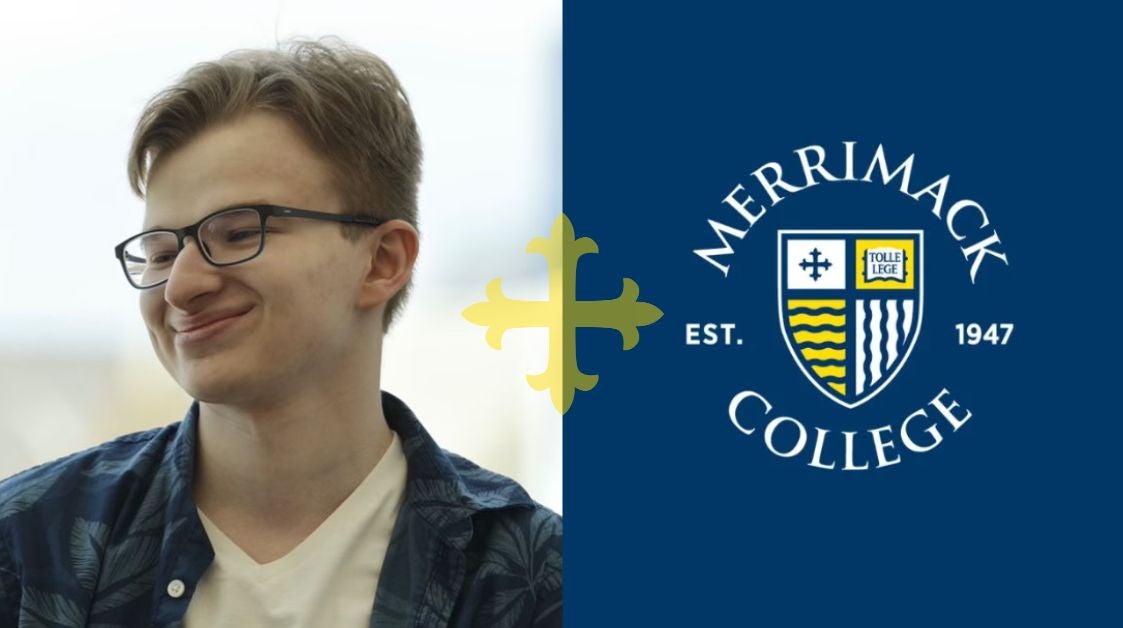When a microfinance lender in Providence, R.I., wanted help in marketing its services, it turned to the expertise of the Girard School. Associate Professor of Marketing Joe Stasio organized Capital Good Fund’s first focus group session and produced a seven-page marketing plan.
Working with Stasio helped CGF revamp how it markets to clients, said Andy Posner, the organization’s executive director.
“Simply put, the difference is night and day,” said Posner. “Where before we imposed our assumptions of our clients, now we base our plans on the feelings and opinions of those we hope to serve.”
This project blended Stasio’s 35 years of consulting experience with Merrimack College’s mission of empowering lives and its vision of engaging “agencies of social change in collaborative efforts fostering a just, peaceful, and sustainable world.” Girard School Dean Mark Cordano granted Stasio funds to help cover costs.
The bonus, Stasio points out, is how he brings this work into his classroom: “One of the best parts of these assignments is sharing them with my classes. Students generally enjoy the real-world experiences like this because it demonstrates problems and results to which they can relate,” he said.
Capital Good Fund, a 6-year-old nonprofit and certified Community Development Financial Institution, provides loans and instruction to help lift low-income families and individuals in Rhode Island out of poverty. It competes against payday lenders, auto-title, rent-to-own, refund anticipation, and other predatory lenders.
To increase its profile against those predatory lenders, CGF knew it needed “an effective—and cost-effective—marketing strategy,” its leaders wrote in the Stanford Social Innovation Review.
Assistant Professor of Finance Ana Silva sits on CGF’s board of directors and had used its services for training herself and three other Girard School professors as she sets up the school’s new Financial Capability Center. She recommended CGF contact Stasio.
After completing a marketing audit, Stasio “told us something we thought we already knew: listen to our clients,” wrote Posner and CGF co-founder Mollie West in the Review article. Two focus groups were scheduled. Silva and marketing student Caitlin Wall ’17 assisted in running the meetings.
Stasio’s marketing plan drew three conclusions from the focus groups:
- The market has a clear need that CGF meets more readily and efficiently than any competitor.
- CGF offers the right types of products and terms. The interest rates are lower than payday lenders, and most, if not all, clients do not qualify for conventional loans.
- The service CGF offers is exemplary.
The focus groups suggested CGF conduct more networking and outreach with churches, housing agencies and libraries. “One comment that stood out,” wrote Stasio, “was that it seemed that most of the social services were linked except financial assistance.” He recommended CGF explore the opportunity for all social services to network.
His plan recommended a new name for CGF that conveys the image of what it does, a new logo and tagline, the hiring of a marketing manager and creating a marketing and sales group, and developing a social media strategy. The result could be 100 percent growth in five years.
When he shares CGF in his classes, Stasio said, “I explain how marketing occupied so little of their focus, an entirely new marketing focus was needed.”
His consulting clients over the years are too numerous to tally, he said.
He has founded several companies, among them Cardea Technologies Inc., for which he is director of marketing, and C-LevelClone.com, where is director of business development. He’s also a founder of CryoMedic Technologies.
The Girard School professional development fund has no set amount in it, said Cordano: “It’s just a matter of finding funds when people have good ideas that need to be done.”
For the full story written about Professor Stasio’s work with the Capital Good Fund, visit the Stanford Social Innovation Review at: http://ssir.org/articles/entry/lending_an_ear_to_loan_beneficiaries


